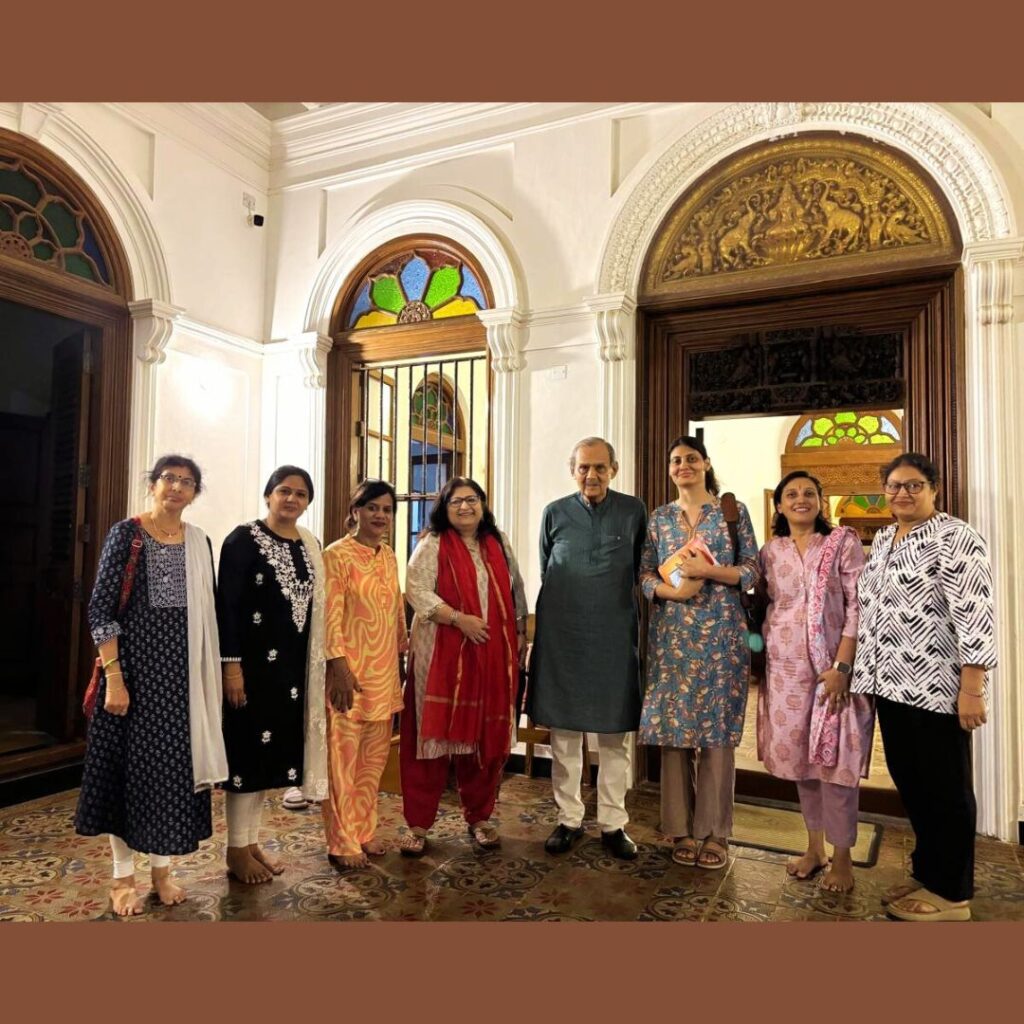Date: August 30, 2025
Venue: Matriniketan
As part of the residential programme organized by Uditam: Institute for Integral Healing, Sri Aurobindo Society, Dr. Beloo Mehra, Director, BhāratShakti, was invited to facilitate a group discussion on Saturday, August 30, 2025. The focus of this session was on understanding ‘Work as a Means for Inner Progress’.
Dr. Mehra began by saying that the moment one hears the word Karmayoga, the first thing that comes to the mind of most Indians is the teaching of Bhagavad Gita. She pointed out that it is however important to know that the teaching of Gita with regard to Karmayoga, nishkāma karma, and disinterested action, etc. is very subtle and needs to be grasped in its entirety and complexity, failing which we misinterpret and may confuse any passionate work or workaholism with Karmayoga.
She gave a brief context in which the teaching of Gita arises, the significance of the battlefield and the specific dilemma that Arjuna faces in that moment. Sri Aurobindo emphasises that the whole teaching of the Gita revolves around Arjuna’s original crisis, which is a very practical crisis in the application of ethics and spirituality to human life. Therefore, it is essential to first get a clear understanding of the significance of the battle of Kurukshetra and its effect on Arjuna’s inner being.
Dr. Mehra added that the modern intellectual mind has a tendency to look at the Gita’s teaching as primarily a general spiritual philosophy or ethical doctrine. But what is important to recognise is that it is truly a book of spiritual life. Undoubtedly, the Gita emphasises the Yoga of Works, but these are works which culminate in knowledge, or in other words lead to spiritual realisation and quietude.
Also, Dr. Mehra pointed out that these are works that are motived by devotion to the Divine, which requires a conscious surrender of one’s whole self to the Supreme. The works that the Gita speaks of are not at all as they are understood by the modern mind, not at all an action dictated by egoistic and altruistic, by personal, social, humanitarian motives, principles, ideals.

She spoke briefly of the few signs of a liberated worker or a karmayogi. These include complete lack of doer-ship, detachment not only from the fruits of the work but also the work itself, and perfect equality. To explore these concepts in a more applied way, she led the group into a reflective exercise asking them specific questions on their possible responses in certain hypothetical situations. She also asked each of the participants to briefly speak about their key ‘motives’ for the work they are doing.
The group also discussed a few points on the role of ego and egoism and how they impact our attitudes towards work. Some specific advice given by the Mother on cultivating right attitudes towards work were also pointed out by Dr. Mehra. She reminded the significance of ‘Remembering and Offering’ in this regard, and said that sincerity and constant vigilance are important aspects of all such yogic practices.
Shri Pradeep Narang, Chairman, Sri Aurobindo Society was also present at the session, and he pointed out that it is important to understand the right place of ego in individual identity formation and when it becomes a bar in further progress of the being. Some practical examples were also shared with regard to the role of work as a means to develop greater capacity and uncover hidden potentialities.
For more sessions conducted by BhāratShakti for Uditam programme, see HERE.
